19 Feminist Epistemologies
Monica C. Poole
Chapter Learning Outcomes
Upon completion of this chapter, readers will be able to:
- Discuss important concepts in feminist epistemologies, including standpoint, situated knowledge, gaslighting, power-based ignorance, epistemic advantage, epistemic injustice, and epistemologies of resistance.
- Identify some significant philosophers contributing to feminist epistemologies.
- Contextualize feminist epistemologies in relation to other significant conversations in epistemology.
- Apply concepts in feminist epistemologies to real-life situations (e.g., in current events, pop culture, and lived experiences).
Introduction
This chapter’s title is plural—feminist epistemologies—because there is not one unified feminist epistemology. Indeed, feminist epistemologies value plurality: collaboration among multiple perspectives results in more complete, valid knowledge. One of the most significant contemporary philosophers contributing to feminist epistemologies is Patricia Hill Collins. Collins’s work established a paradigm for the past thirty years of feminist epistemology. In Black Feminist Thought, Collins wrote that epistemology “investigates the standards used to assess knowledge or why we believe what we believe to be true. Far from being the apolitical study of truth, epistemology points to the ways in which power relations shape who is believed and why” ([1990] 2000, 252).

Sometimes, this approach has been criticized as an inappropriate “pollution” of epistemology with political considerations, especially when practiced by philosophers who are people of color or women (or both). Responding to some of these critiques, Linda Martín Alcoff located feminist epistemologies in a long history of politically attuned epistemology. She identified several European male philosophers traditionally highlighted in the history of epistemology such as John Locke (1632–1704), Immanuel Kant (1724–1804), and Bertrand Russell (1872–1970), who openly avowed the political merits of their epistemological positions (1999, 73–74). Ultimately, feminist epistemologies do not separate epistemology from ethics or politics: inquiries about knowledge are considered in relation to inquiries into right and wrong, and power and oppression.
Published work in feminist epistemologies increased significantly during the twentieth and twenty-first centuries, and this chapter will focus on this contemporary period. However, feminist epistemologies are ancient, just like epistemology in general. Sometimes, there is an erroneous perception that feminist philosophy is a relative newcomer within philosophy. So that the contemporary focus of this chapter does not risk reinforcing that error, let us pause to highlight a few pre-modern contributions. [1] Consider, for example, the second-century eastern Mediterranean text known as the Gospel of Mary, which fits into contemporary Hellenistic and Gnostic Christian philosophical traditions (King 2003). The Gospel of Mary engages with themes familiar to philosophers working in feminist epistemologies today, as do medieval and early modern contributors to the field—for example, Hildegard of Bingen (1098–1179), Mary Astell (1666–1731), and (most significantly) Juana Inés de la Cruz (ca. 1651–1695). These include the limits of knowledge, the consequences of ignorance, the relationship between emotions and credibility, and, perhaps most pointedly, the refutation of opponents who claimed that these philosophers’ gender identities diminished their authority as knowers.

While a wide variety of ideas may be included under the umbrella of “feminist epistemologies,” there are several recurring themes that have been used to guide the structure of this chapter:
- All knowledge is situated knowledge: knowledge does not exist in a vacuum; all knowledge comes from someone and somewhere, and where you come from (your standpoint) shapes how you approach knowledge.
- Lived experiences are knowledge: real-life, first-person experiences contribute to knowledge, validate a knower’s credibility, and shape their standpoint.
- Power shapes knowledge: a knower’s relative position in hierarchies of social power contributes to greater knowledge or deeper ignorance.
- With knowledge comes responsibility: the knowledge one constructs has real consequences for real people, and a knower is personally accountable to one or more communities for how they “do knowledge.”
- Knowledge comes through collaboration: the most complete knowledge is created through “kaleidoscopic” dialogue and collaboration, reflecting multiple different standpoints. This includes dialogue in a literal, interpersonal sense, but incorporates a broader understanding of collaboration, where it is not limited to immediate, real-time social interaction.
Finally, this chapter focuses on feminist epistemologies, and it includes topics in feminist epistemologies that intersect with other significant conversations in epistemology such as queer epistemologies, crip (disability) epistemologies, critical race epistemologies, and postcolonial epistemologies. To adapt Audre Lorde’s maxim (1982), there are no single-issue epistemologies, because we do not live single-issue lives.
Situated Knowledge and Standpoint
Box 1 – Skepticism about Objectivity

When Sonia Sotomayor was nominated to serve as one of the nine Justices of the US Supreme Court in 2009, the public dialogue during her confirmation hearings focused on a profoundly epistemological question: can—and should—judges be objective?
In a 2001 lecture at the University of California at Berkeley, Sotomayor had highlighted the value of a “wise Latina woman” whose judgments were informed by the “richness of her experiences.” Sotomayor noted: “Personal experiences affect the facts that judges choose to see” (Sotomayor [2001] 2009). This speech resurfaced during her 2009 confirmation hearings. Critics objected that Supreme Court Justices should be “objective” and “neutral.” Defenders argued that everyone interprets facts and observations through the “lens” of their own experiences, and highlighted Sotomayor’s acknowledgment of this as a demonstration of honesty and responsibility.
This was a political debate about an epistemological question: can humans know something objectively? Is there a “view from nowhere”—could you perceive something in the world from a perfectly neutral vantage point? Or, should claims to “objectivity” be viewed with suspicion?
In Chapter 7 -Social Epistemology of the original book Introduction to Philosophy: Epistemology, is discussed the concept “situated knowledge” —knowledge “situated” in relation to the knower’s point of view (Haraway 1992, 313). In Paula Moya’s words, “all knowledge is situated knowledge”; nobody can “ascertain universal truths independent of a historically- and culturally-specific situation” (2011, 80). That does not mean there are no universal truths—only that we humans cannot perceive them with a “view from nowhere,” the kind of perspective often described as “objective.”

Situated knowledge is a foundational concept in feminist epistemologies. There are two related concepts to understand: social location and standpoint. Your social location is defined by how you experience misogyny, White supremacy, imperialism, religious persecution, class struggle, and other dynamics of power and oppression. Your epistemic standpoint is the perspective you have as a knower, informed by your social location. Situated knowledge means that a knower has a standpoint. A knower’s standpoint influences what they perceive, what they ignore, and how they interpret information. Philosophers often use “dominant” or “dominantly situated” to describe knowers who wield more social power and “marginalized” or “oppressed” to describe knowers who are relatively excluded from power.
Box 2 – Standpoint
“Standpoint” is a term for an abstract concept, but it’s rooted in a very concrete reality: the view when you stand over here is different from the view when you stand over there.
Imagine you and a friend go to see a concert or sporting event. It’s too crowded to find two seats together, so you agree to each find a seat separately, and then meet up afterward to discuss the experience. When you meet up with them later, you realize that even though you were both at the same event, you understood it differently depending on where you were seated. Maybe you’re talking about one of your favorite moments, but your friend barely noticed it because it was so far away from them. Maybe you and your friend disagree about how to interpret something you both saw: maybe from your angle, the referee made a bad call, but from your friend’s angle, the referee’s call looked perfectly justified. Akira Kurosawa’s film Rashomon (1950) explored this multiplicity of truths in a critical way; sometimes, this general phenomenon is described as “the Rashomon effect.”
Of course, in epistemology, standpoint gets more complicated—especially because you have to consider many layers of power dynamics. But the core of it is this simple analogy: you were both in the stadium, spectators at the same event, but the view from your seat was different from the view from your friend’s seat.
Epistemological questions are ethical questions: questions about knowledge are inseparable from questions about justice. Sotomayor’s acknowledgment of her point of view is in alignment with feminist epistemologies. As Patricia J. Williams writes, abandoning the myth of objectivity and acknowledging one’s standpoint promotes “legal and social responsibility,” because “much of what is spoken in so-called objective, unmediated voices is in fact mired in hidden subjectivities and unexamined claims” that dehumanize one another (1991, 11). A “view from nowhere” is impossible; moreover, striving for it produces unreliable knowledge polluted with unacknowledged biases. However, acknowledging where you are coming from is epistemically virtuous: your knowledge is situated in a context, and you can be held accountable for it.
Changing Standpoints, Changing Knowledge
Standpoint and lived experience are central in feminist epistemologies, and connecting these two elements has led feminist epistemologies to key in on another vital question: how does your knowledge change when your standpoint changes? As you live through various experiences over the course of your life, your standpoint changes—certainly in small ways, sometimes in big ways. Exploring a few philosophers’ takes on how changes in standpoint relate to changes in knowledge will deepen and sharpen our real-world application of standpoint theories.
A. Gender
One important perspective is offered by Veronica Ivy (formerly known as Rachel McKinnon). Ivy is a professor of philosophy working on feminist epistemologies; she is also a transgender woman. In a recent article, she inquired: what happens, epistemically, when you undertake a gender transition?
Box 3 – Clarifying Concepts of Gender
Maybe you’re new to talking about transgender experiences, so let’s clarify some concepts: Ivy is a woman. Ivy is a transgender woman: she is a woman who was “assigned male at birth”—they said “it’s a boy” when Ivy was born, and she was raised as a boy. (“Cisgender” or “cis” would describe a woman who was “assigned female at birth”: they would have said “it’s a girl,” and she would have been raised as a girl.) Ivy’s experiences include being assigned male at birth, being raised as a boy, and transitioning. This does not make Ivy, a trans woman, any “less” of a woman; women have an immense variety of life experiences, and one experience that some women have is the experience of transitioning.
In this article, Ivy is focusing on a shift in her knowledge that comes about through a shift in the social identity she occupies in the world—not how she understands herself, but how other people interact with her, and how she learns to navigate the social norms others apply to her. This is different from her knowledge of herself as a woman, which—for Ivy and for many trans women—happened long before other people recognized her as a woman and interacted with her using social norms and “scripts” for interacting with women.
After you transition, people treat you according to gender norms that differ from those you were socialized to align with when you were growing up. The social space you occupy is different after transitioning, and Ivy argues that this results in a different epistemic standpoint on familiar situations. You might have access to some new kinds of knowledge; you might also be blocked or hindered in access to other kinds of knowledge you were easily able to access before (2015, 436). Consider the following excerpt from Ivy’s article (Box 4).
Box 4 – Veronica Ivy on “What-It’s-Like” Knowledge & Experience

Turning to a real-world example, many men are at least somewhat aware that women often feel unsafe walking home alone at night, particularly after dark. They may even have some understanding why women experience this fear. But they tend to lack the “what-it’s-like” experience that women tend to have. And lacking that “what-it’s-like” has epistemic effects. For example, many men aren’t aware that many women choose to wear footwear on walks home at night in which they can more easily run if they need to.
Now consider a trans woman who transitions in her 20s. I’ve spoken to many trans women who transitioned in their 20s or 30s who’ve had the experience where pre-transition they had no real concern about walking home on a particular route at night. But post-transition, they were acutely afraid of that same route, and they changed their behaviors accordingly. What was taken to be known—that women experience fear and concern about walking home alone in the dark—took on a new depth of understanding when the same agent occupied the social identity and position of a woman being confronted with walking home alone in the dark. (Ivy [formerly McKinnon] 2015, 436)
Ivy described her changing perspective on misogyny pre- and post-transition: “Changing my social identity and location to being a woman changed my situatedness and it changed how I struggle against subtle forms of misogyny and sexism. This changed, and began to sharpen, my ability to even perceive such instances as instances of sexism” (2015, 436). There is a clear difference between hearing about an experience “secondhand” and experiencing it yourself. Ivy experiences “what-it’s-like” to be treated as women are treated in social spaces—an experience that she had not had pre-transition—and this leads her to a more acute perception of misogyny, sexism, and violence against women. This speaks to multiple topics in feminist epistemologies including standpoint, lived experience, and a topic we will discuss later in this chapter: power-based ignorance.
B. Disability
While Ivy’s experience might be unfamiliar to some, experiencing a change in ability is nearly universal: as Rosemarie Garland-Thomson wrote, “most of us will move in and out of disability in our lifetimes,” through illness, injury, or simply aging (2016). Feminist disability epistemologies offer another window into changes in standpoint, which further illuminates the concept of standpoint.
Aimi Hamraie described how the built environment reflects a “normate template” of design. How tall is the doorway? How wide is the chair? How bright are the lights? For buildings, clothing, furniture, and many other things, designers envision a specific type of body (and mind) as “normal.” The normate template reinforces a “one-size-fits-all.” In Hamraie’s article, they analyze how it is sustained by the illusion “that normates are normal, average, and majority bodies” (2013). This illusion resonates with Audre Lorde’s concept of the “mythical norm” (1984, 116).
One size does not fit all. If the doorways, chairs, and light levels “fit” you, you might develop a false belief that they fit everybody. However, when they aren’t a good fit for you, you are acutely aware that you are in a space built to fit someone—and that someone is not you. As Hamraie puts it, “misfitting shatters the illusion” of the normate template, and signifies its failure to reflect many humans’ living realities (2013).
Fitting is impermanent: as Garland-Thomson notes, “Any of us can fit here today and misfit there tomorrow” (2011). As their body changes, a person who is accustomed to “fitting” might newly experience “misfitting.” This change over time might, likewise, shatter the illusion of “normal” and expand their personal epistemic resources.
This section focuses on one specific epistemic aspect of disability; regrettably, a full consideration of epistemologies of disability and crip epistemologies is outside the scope of this chapter. Readers eager to learn more are encouraged to consult the Stanford Encyclopedia of Philosophy article on “Critical Disability Theory” (Hall 2019) for an overview, as well as recent interviews in Shelley Tremain’s Dialogues on Disability series featuring Laura Cupples (2020) and Nathan Moore (2020).
Epistemic Advantage
While your standpoint changes as your experiences change, at any given moment you have a distinctive standpoint. Following Williams, honestly “owning” your standpoint makes you more reliable as a knower than one who claims a false objectivity. However, are all standpoints equally valuable? Returning to our analogy about a stadium: could you have a “better view” of the action from one standpoint than another?
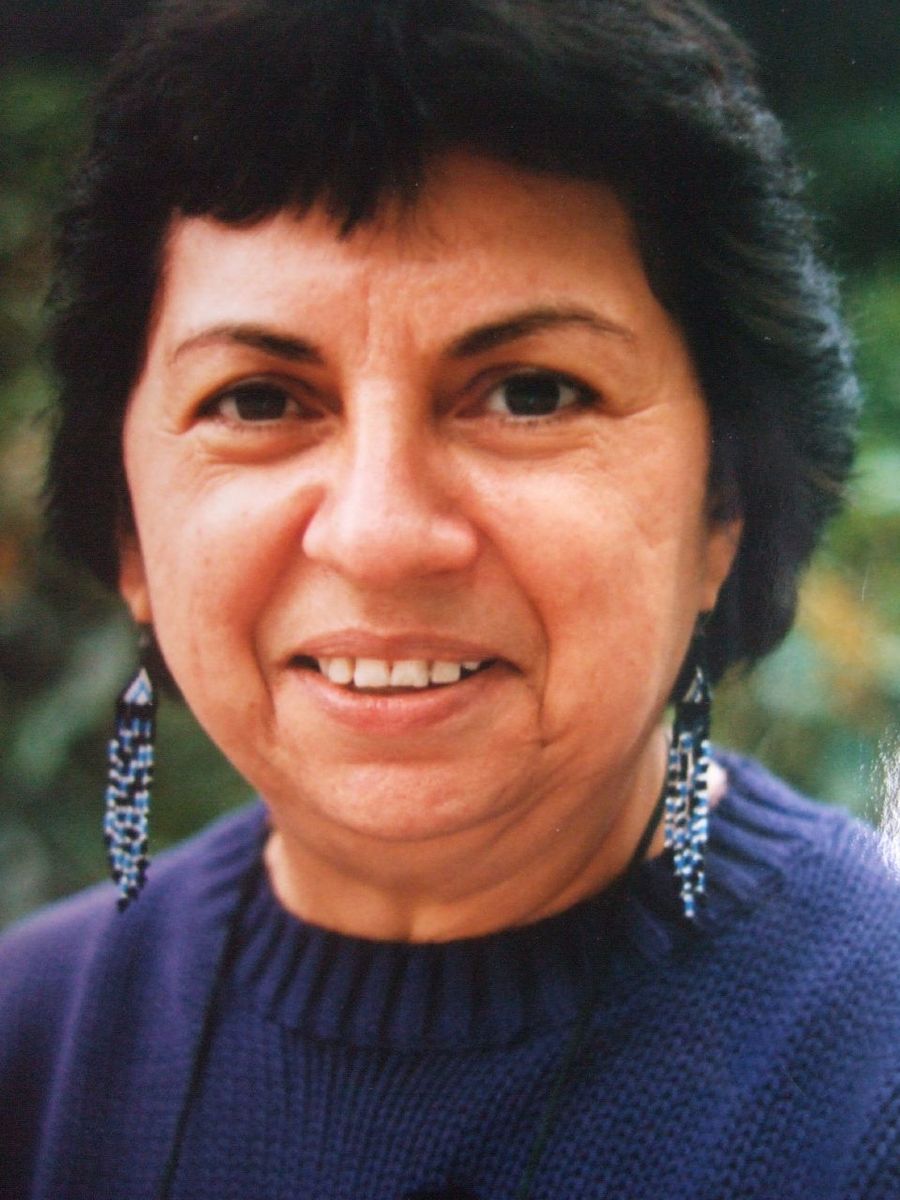
One key insight of feminist epistemologies is the idea that oppressed or marginalized groups might hold an “epistemic advantage.” Within feminist epistemologies, perspectives on the nature of this idea vary.
One point of view envisions this as a dual knowledge, in a way that is in dialogue with the “mestiza consciousness” discussed by Gloria Anzaldúa (1942–2004) and the Black “double consciousness” discussed by W. E. B. Du Bois (1868–1963). When a society is structured to favor a dominant group—placing their knowledge, practices, and norms at the center—people outside that dominant group typically need to acquire fluency in the dominant group’s knowledge, practices, and norms in order to function within that society. The comparatively marginalized person needs to learn the knowledge of the dominantly situated group in addition to their own—but not the other way around.
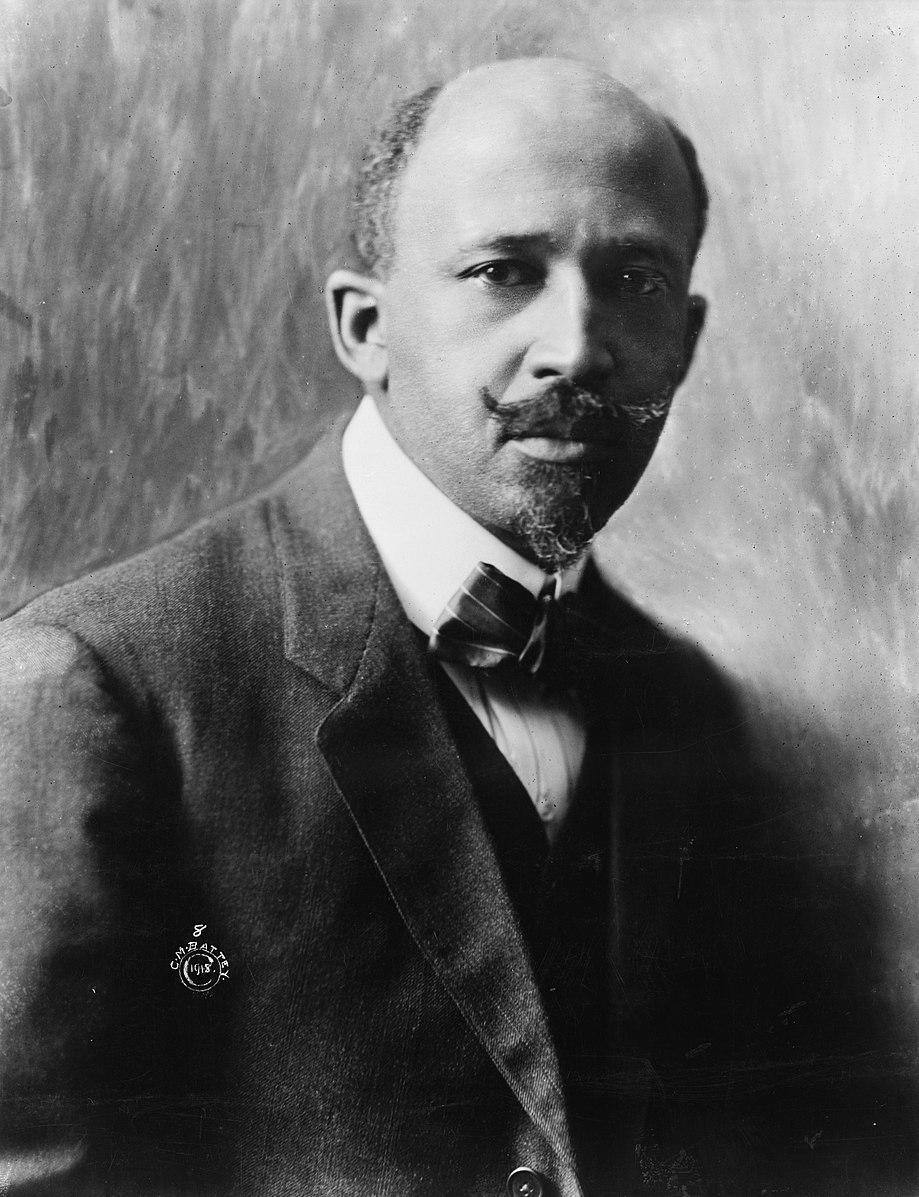
Language-learning in a (post)colonial context is often used to illustrate this disparity. The British Empire colonized many places around the world with rich linguistic and literary heritages—many of which are now places where English is an important language of formal education and commerce. Consequently, many of the world’s fluent speakers of English are native speakers of languages such as Bengali, Irish, or Shona. On the other hand, among the world’s fluent speakers of English, many of those who speak English as their first language are monolingual, and remain so. Moreover: when monolingual native speakers of English do learn a second language to advance in the business or educational world, how likely is it to be Bengali, Irish, or Shona?
Another core argument is that the epistemic advantage of the feminist standpoint comes from the experience of living as a woman in a misogynist society and the development of a “critical consciousness about the nature of our social location” (Wylie 2003, 31). Paulette Nardal (1896–1985) was a foundational figure in establishing this idea ([1932] 2002). Nardal formulated this as part of commenting on the epistemic acuity of Antillean women students in early twentieth-century Paris. As Nardal wrote, “The women of color living alone in the metropolis,” who were “less favored than their male compatriots,” arrived more rapidly at what Nardal described as “the awakening of race consciousness” ([1932] 2002, 122). [2] Subsequently, rooted in Marxian theories about other standpoints, Nancy Hartsock (1983) defined the “feminist standpoint” as an epistemic achievement that comes about through struggle and analysis, establishing the vocabulary of “standpoint” to characterize this idea in feminist epistemologies.

Another important idea—also dating back to Nardal—locates the significance of epistemic advantage in the two-part activity of (a) critiquing the limits or errors in knowledge provided by dominant, mainstream structures and (b) constructing knowledge resources that mitigate those flaws. For example, suppose your child’s public school curriculum narrates the national history in a way that neglects the history of your ancestors within that nation. To fill in the gaps in the school curriculum, you seek out other resources such as books, documentaries, and online activities. Sometimes, there’s not a child-friendly resource, so you make your own. In effect, first, the knower critically recognizes that the “default” content and frameworks for knowledge were constructed to reflect someone else’s experience—not their own. [3] Then, perceiving the inadequacies of the existing epistemic resources, a marginalized knower contributes to constructing alternative epistemic resources that are “experience-rich” and more comprehensive than mainstream epistemic resources. Often, this takes place in a community of marginalized knowers.
Epistemic advantage is a powerful idea that should be applied with care. In a foundational article in feminist epistemologies, Uma Narayan identified some of the perils of how “Western” (often, White) feminist philosophers applied the idea of epistemic advantage too crudely or naively to women in “non-Western” contexts (1989). Notably, Narayan highlighted the fact that simply having access to different sets of knowledge and ways of knowing is no guarantee of deep critical insights—what matters is what you do with that knowledge. Equally importantly, Narayan cautioned readers to recall that a position of epistemic advantage is not necessarily comfortable, safe, or satisfying to dwell in. Narayan advised “Western” feminist philosophers to check the assumption that non-Western feminists would “express unqualified enthusiasm about the benefits of straddling a multiplicity of contexts” (221). Narayan highlighted the discomfort of perpetual outsiderness, rootlessness, or lacking a space to feel fully relaxed and “at home.” [4] As Narayan wrote, “The decision to inhabit two contexts critically, although it may lead to an ‘epistemic advantage,’ is likely to exact a certain price” (222). As the bicultural philosopher Sor Juana Inés de la Cruz explored in the seventeenth century, such knowledge can take a toll on one’s well-being: “For all I add to discourse/I usurp as much from my years” (2014, 13–14).
Power-Based Ignorance
Just as experiencing oppression can shape a person’s knowledge, being in a position of social power can produce ignorance. José Medina (2013) refers to this as being epistemically “spoiled.” Like coddled children, people in a “dominantly situated” position of social power and privilege can be “spoiled” epistemically because they rarely have to acclimate to unfamiliar epistemologies. When the world is built to suit their experiences and ways of knowing, why would they bother to learn any others?
In practice, a knower is rarely 100% dominantly situated, but most knowers are dominantly situated in at least one context. It can be fruitful, therefore, to discuss different forms of ignorance that track different forms of social power. Epistemologies of ignorance address various forms of what we might call power-based ignorance—including White ignorance, male ignorance, straight ignorance, rich ignorance, and abled ignorance. Power-based ignorance reflects an intellectual laziness stemming from the “privilege of not knowing or not needing to know” (Medina 2013, 32). Feminist epistemologies of ignorance have explored how being ignorant of certain topics is normalized in dominant, patriarchal culture. These topics include sexual harassment, menstruation, clitoral orgasm, gaslighting by supposed allies, and forced sterilization (Tuana 2004, 2006; Tuana and Sullivan 2006; Fricker 2007; McWhorter 2009; and Ivy [McKinnon] 2017). Like most topics in epistemology, this can be explored at many levels. Consider, for example, how personal and family life are impacted when it is normalized for men to be ignorant of the basics of menstrual care. Or, consider how many matters of political significance are relegated as “women’s issues.”
Feminist epistemologies of ignorance also critically consider ignorance among feminists. In a foundational article, Mariana Ortega discussed “loving, knowing ignorance” as an attribute of White women responding to women of color (2006). White feminist women demonstrated an “ignorance of the thought and experience of women of color that is accompanied by both alleged love for and alleged knowledge about them” (57). Ignorance is far from innocent: as Ortega indicated, White feminist knowledge production may reject responsibility and adopt an “arrogant perception” that harms women of color.
Building on this idea, Medina explored the stakes of ignorance for epistemology and for ethics. Medina discussed the responsibility of a knower to remedy their ignorance: “The collective ignorance may not be of one’s choosing,” it may be inherited or normalized in one’s upbringing, but that is no excuse. A knower must make an effort to combat their ignorance. Otherwise, “one’s inattention to the ignorance one partakes in becomes complicity and active participation” (2013, 140). Combating one’s power-based ignorance is both a moral and an epistemic responsibility.
Constructing Ignorance: Choices, Gatekeepers, and Accountability
Medina’s discussion invites a broader consideration of responsibility. While many factors contribute to patterns of ignorance, they do not “just happen.” People make choices. In Heidi Grasswick’s words, “ignorance is not the result of a benign gap in our knowledge, but deliberate choices to pursue certain kinds of knowledge while ignoring others,” and we must be held accountable for these choices (2011, xvii). Formal education reflects many such choices: when a college has a curriculum that is made up of “core courses” required for all students, and “electives” that are optional, somebody in charge made a decision about which courses would be “core” and which would be “elective.” Consider the contemporary proverb by scholar and educator Ozy Aloziem: “White privilege is your history being taught as part of the core curriculum, while mine is being offered as an elective.”
Who makes those “deliberate choices”? Sometimes, they are described as gatekeepers of knowledge. In academic life, professors, librarians, and publishers are among these gatekeepers: they determine what counts as a “reliable source,” what is a “significant question” in a field, what is a “core” requirement—in short, they define “mainstream,” dominantly situated knowledge. An individual student might also have choices—for example, they might choose one among several courses that can fulfill a particular degree requirement—but the lion’s share of the responsibility in this case rests in the hands of the people who defined those degree requirements.
Valuable epistemic resources developed by marginalized people are often met with resistance from dominantly situated knowers, people who are in positions of relatively high social power—especially in academia. Linda Tuhiwai Smith’s Decolonizing Methodologies: Research and Indigenous Peoples (1999) is a foundational work highlighting vital epistemic resources that most academics had ignored. [5] More recently, consider the scholarly conversation around the politics of citation and structural inclusion/exclusion: Sara Ahmed (2013), Jenn M. Jackson (2018), and Kecia Ali (2019) are three important contributors.
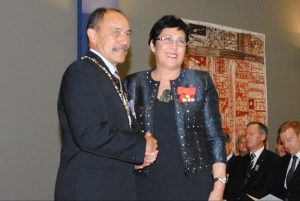
As Gaile Pohlhaus discussed, dominantly situated knowers are not incapable of understanding frameworks developed by knowers who are relatively marginalized. However, they are not socially penalized for their lack of familiarity with relatively marginalized epistemic resources, and they have little social incentive to build their capacities. Indeed, the dominantly situated knower may find that marginalized knowledge might reveal the unearned advantages that keep them in their positions of power (Pohlhaus 2012, 721). Willful ignorance, on the other hand, may protect their power.
Meta-Ignorance
Ignorance has an inherent feedback loop: one may be ignorant of one’s ignorance. Medina called this meta-ignorance. As Kristie Dotson observed, “Convincing people that they are missing something integral when, in fact, they cannot detect such deficiencies is no easy task” (2014, 14). Encountering concepts like “date rape,” “White privilege,” and “cis-heteronormativity,” a knower ignorant of the experiences from which these concepts are constructed might perceive this as “making something out of nothing.”
Philosophy is just as susceptible to this as any other field—indeed, perhaps more so. For instance, Pohlhaus identified that mainstream epistemology had initially dismissed the idea of the “situated knower” (2012, 722). Dotson and many others have critiqued the normalized meta-ignorance and irresponsible gatekeeping by colleagues in academic philosophy (Dotson 2013, Dabashi 2013, Park 2014). Feminist epistemology is not exempt from this; notably, as discussed by Ortega and others, White women in feminist epistemology too often ignore the work of colleagues who are women of color. When we hold powerful knowers accountable for ignorance, we must also hold the mirror up to ourselves.
Epistemic Injustice
Miranda Fricker (2007) defined a vocabulary of epistemic injustice that has been widely adopted to describe how power interferes with knowledge. The development of these concepts was principally undertaken by many earlier philosophers (including Patricia Hill Collins and Mariana Ortega, discussed above). That said, Fricker’s vocabulary has played an important role in defining this conversation in epistemology as a whole. Fricker distinguished two types of epistemic injustice:
- Testimonial injustice: related to credibility and validation
- Hermeneutical injustice: related to resources for constructing understanding
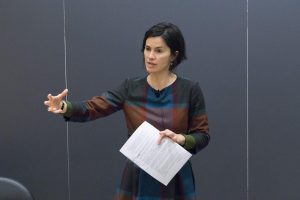
A. Credibility
Dominantly situated knowers not only have the power to ignore; they also have the power to discredit. Indeed, ignoring and discrediting often go hand in hand. As noted above, dominantly situated knowers might claim that marginally situated knowers are “making something out of nothing” and discredit their knowledge as exaggerated, irrelevant, or unreliable.
In epistemology, “testimony” does not only refer to testimony in a court of law: if you know something because you read it in a book, or heard it from another person, or looked it up online, you are relying on testimony. But how do you decide whose testimony you should believe? How do you evaluate whether a source is credible? [6]
As Lorraine Code (1995) observed, judgments about credibility are applied “unevenly” across social locations. A recipient of knowledge might “discount” or “deflate” the credibility they assign to a knower (or source of knowledge) based on unfair social biases on the recipient’s part. Credibility discounting might reflect many different angles of bias, including gender, race, education, age, physique, and language. Consider, for example, Tina Sacks’s analysis of how healthcare providers fail to take Black women seriously as “credible witness[es] to [their] own conditions” (2019, 49). Credibility may also be “inflated” according to inequitable distributions of social power, rendering to some people more credibility than they have fairly earned. Notably, Audrey Yap (2017) analyzed credibility excess in cases of sexual assault. In both of these forms of testimonial injustice, a person’s knowledge is not evaluated on its own merits, but is discounted or inflated according to social hierarchies.
Credibility inflation/deflation is enacted in many ways. To take one example, emotional expression is often used to discredit people; indeed, the very word “hysterical” was developed to discredit some women as knowers. Moreover, if a recipient of knowledge discredits a knower as “too emotional,” that itself might provoke strong emotion—rage, disappointment, sorrow, etc.—in the knower. The recipient can use that emotion as further ammunition to discredit the knower, in a vicious loop that Veronica Ivy (2017) called the “epistemic injustice circle of hell” (169).
Gaslighting is probably the most widely recognized issue of testimonial injustice. Pausing to consider gaslighting may further illuminate these questions of credibility and testimonial injustice.
“You’re overreacting.”
“It’s all in your head.”
“There you go again.”
“Don’t make a big deal out of nothing.”
These are phrases often associated with gaslighting—undermining someone’s confidence in their own credibility, in particular, undermining their trust in their own perceptions of reality. Gaslighting may take place as part of interpersonal harm in private or structural violence at a societal level. In either case, gaslighting often re-enacts systemic injustices, such as White supremacy, misogyny, and cis-hetero-normativity.
In popular everyday use, “gaslighting” might be used to describe many forms of doubting or discrediting. However, when we are doing philosophy, more precise definitions of terms are needed.
First, gaslighting is different from simply questioning, refuting, or correcting a perception: if I am gaslighting a person (or a group of people) I am attempting to make them doubt their perceptions in general or their capacity for accurate perception. This breadth is important: casting doubt on someone’s credibility and capacity for accurate perception in general is quite different from calling into question a specific perception of theirs that may be erroneous, or sharing your own dissenting perception of something specific.
In addition, gaslighting is different from contradicting, dismissing, or discrediting someone. If I am gaslighting you, I am not necessarily conveying “I don’t believe you,” nor am I necessarily advising some third party that they shouldn’t believe you. Although gaslighting often is combined with both of those forms of credibility deflation, the defining element in gaslighting is that it undermines your confidence in yourself as a knower: not “I don’t believe you,” but “you shouldn’t believe yourself.” In Kate Abramson’s analysis, “dismissal simply fails to take another seriously as an interlocutor, whereas gaslighting is aimed at getting another not to take herself seriously as an interlocutor” (2014, 2).
Gaslighting, finally, is targeted: it is not about casting doubt on the reliability of human knowledge in general, but about a particular individual, group, or category. If I am gaslighting you, I am attempting to persuade you that your perceptions are particularly untrustworthy, more so than people in general. Often, but not always, this might include persuading you that you should trust my perceptions of your experience more than your own. [7]
B. Collective Hermeneutical Resources
Hermeneutics is the process of understanding and being understood; it’s how we turn the “raw data” of information into knowledge that has meaning. Hermeneutical injustice, for Fricker, takes place when a gap in the resources for understanding allows for an abuse of power.
Box 5 – Hermeneutical Gap
Imagine you heard someone say: “She’s a Slytherin” or “That’s a classic Gryffindor response.” That would seem like nonsense—unless you were familiar with the Harry Potter universe. Slytherin and Gryffindor are two of the four “Houses” students belong to at Hogwarts, the school where the Harry Potter novels are set; each House is associated with attributes of personality and character. The Hogwarts Houses are, in a way, a “hermeneutic”—a framework for constructing understanding.
When we consider hermeneutical injustice, we are often exploring the shortcomings of a hermeneutic. Consider the four Hogwarts Houses—or the Myers-Briggs Type Inventory, or the Enneagram, or any other framework categorizing personalities. What about a person who has attributes of two different categories? Or, what about a person who doesn’t seem to fit any of the categories? Where do they fit in? Considering these questions reveals a hermeneutical gap—a gap in the resources that a particular framework offers for constructing understanding. Often, an issue of hermeneutical injustice is identified by exploring a hermeneutical gap.
Bosses sexually harassed employees long before the term “sexual harassment” was developed, but according to Fricker, victimized employees lacked the knowledge to name their experiences and accuse their bosses. Fricker defines this as a gap in the “collective hermeneutical resources,” and argues that this was part of the injustice done to employees victimized by sexual harassment. [8]
Let’s pause to consider that idea. Philosophers build knowledge through collegial critique, and colleagues spotted some weaknesses in Fricker’s argument. Can you spot any?
Maybe you’re wondering: a gap for whom? Who lacks those resources? After all, a hermeneutical gap for one is not necessarily a hermeneutical gap for all. Who is to say that there would be just one one-size-fits-all set of collective hermeneutical resources?
Kristie Dotson was one of the most significant contributors to this conversation. For Dotson, Fricker’s characterization of the collective hermeneutical resources “fails to take into account alternative epistemologies . . . that exist in hermeneutically marginalized communities among themselves” (2012, 31). While some knowers might have a gap in their knowledge, that isn’t a gap in knowledge. Returning to the idea of power-based ignorance, dominantly situated knowers may be unaware of knowledge developed by marginalized people. That is not a lack in the collective knowledge or collective hermeneutical resources of humanity—just a lack of knowledge or hermeneutical resources among some people in power.
Box 6 – A Gap for Some Is Not a Gap for All
Just because the mainstream doesn’t know something does not mean it is not known. Consider, for example, how lesbian and queer communities have language defining a panoply of forms of masculinity (e.g., butch, stud, boi, masc-of-center). For some, these vocabularies describe female masculinities.
These conceptual vocabularies have evolved over generations, and continue to evolve today. They reflect precise distinctions and intersect in complex, nuanced ways with trans and nonbinary[9] identities as well as other identities including class, race, and age. Meanwhile, dominantly situated knowers in “mainstream” culture might lack even the basic idea of female masculinity.
Dotson highlighted the epistemic significance of hermeneutical resources developed by marginalized people. While dominant hermeneutical resources might be inadequate in making sense of certain experiences of injustice, hermeneutical resources “homegrown” in marginalized communities prove more useful. Marginalized people create, value, and use these resources and knowledge, whether or not dominantly situated people recognize them (2012, 2014).
Kaleidoscopic Epistemologies: Together, We Know Best
If power can lead to ignorance, and oppression can lead to epistemic advantage, does that mean that the most oppressed knowers always know best? No: it’s not that simple. The relationship between knowledge and power is a vital epistemological question that philosophers continue to grapple with. However, while there are many perspectives on how power and knowledge relate to one another, none of them advance a simplistic equation where the value of someone’s knowledge would increase as their power decreased.
Feminist epistemologies value collaborative construction of knowledge, integrating multiple perspectives for a comprehensive whole. Collins had defined this paradigm as follows: multiple groups of knowers with distinctive standpoints share their knowledge with each other, with each group using its unique epistemological approaches and avowing its distinctive standpoint. Each group shares its own “partial, situated knowledge.” Openly acknowledging their standpoint does not diminish a knower or their knowledge: indeed, situating your knowledge is a criterion for credibility. Since each “perceives its own truth as partial” they recognize their interdependence with other knowers. “Each group becomes better able to consider other groups’ standpoints without relinquishing the uniqueness of its own standpoint or suppressing other groups’ partial perspectives” (Collins [1990] 2000, 270). Each holds a piece of a larger puzzle: their piece is valuable, as is their neighbor’s, and they know best when they put their pieces together. [10]
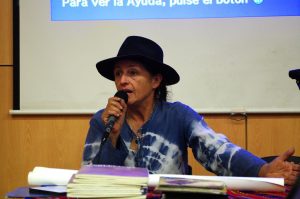
More recent work in epistemology has enriched these points. Indeed, Dotson’s abovementioned critique of Fricker reflected Dotson’s theorizing about a plurality of collective hermeneutical resources, which itself built on Collins. José Medina (2011, 2013) advocated a “kaleidoscopic” approach characterized by “guerrilla pluralism” and a constructive “epistemic friction.” Silvia Rivera Cusicanqui described constructing knowledge according to the Aymara concept of “ch’ixi,” interwoven-ness of multiple threads, the “parallel coexistence of multiple cultural differences” (2012, 105). While there are important differences in the details of the philosophical frameworks provided by Collins, Dotson, Medina, and Rivera Cusicanqui, a common thread is generating knowledge by placing multiple standpoints and knowledge resources in dialogue together as an integrated whole. Whether it’s a kaleidoscope, a tapestry, or any of the many other metaphors used to describe it, a commitment to plurality and dialogue is a cornerstone of feminist epistemologies.
Interconnections
Uma Narayan reflected that feminist epistemology “resembles the efforts of many oppressed groups to reclaim for themselves the value of their own experience” (2004, 214). In fact, feminist epistemologies necessarily are interconnected with critical race epistemologies, postcolonial epistemologies, disability epistemologies, queer epistemologies, and more. As discussed above, we do not live single-issue lives, and we do not have single-issue epistemologies.

Often, this interconnectedness in feminism (and feminist epistemologies) is described as “intersectionality,” broadening a conceptual framework and vocabulary created by Kimberlé Crenshaw (1988, 1991). Consider, for example, the works of Jasmin Zine (2004) and Farhana Rahman (2018), which illustrate an intersection of at least three elements: religion-specific epistemology, anti-racist epistemology, and feminist epistemology. Rahman illuminates Muslim women scholars’ resilience in response to two forms of epistemic marginalization: (1) often-patriarchal Islamic scholarly epistemologies; and (2) often-Islamophobic, White, secularist academic feminist epistemologies.
José Medina’s work on epistemologies of resistance (2013) is significant in part because it powerfully integrates several conversations within epistemology with a strong emphasis on the possibilities that epistemic interconnectedness offers for equity and justice in a broader social sense. Along with dismantling historically empowered epistemic systems, epistemologies of resistance construct more responsible ways of knowing rooted in historically marginalized knowledge, toward social and personal transformation. One important voice in this is the queer feminist Indigenous epistemology of the Michi Saagiig Nishnaabeg philosopher Leanne Betasamosake Simpson. Simpson contrasts her Nishnaabeg forms of intelligence, processes of education, and ways of constructing knowledge with dominant “Western” epistemologies characteristic of settler colonialism. For Simpson, lifting up Nishnaabeg epistemology is part of a larger process of resurgence among Indigenous people. Now, as ever, epistemology is not isolated from living, human realities—including “political” realities.
Box 7 – Leanne Betasamosake Simpson: Theory with Living Resonance

To me, this is what coming into wisdom within a Michi Saagiig Nishnaabeg epistemology looks like—it takes place in the context of family, community and relations. It lacks overt coercion and authority, values so normalized within mainstream western pedagogy that they are rarely ever critiqued. The land, aki, is both context and process. The process of coming to know is learner-led and profoundly spiritual in nature. . . .
“Theory” is generated and regenerated continually through embodied practice and within each family, community and generation of people. “Theory” isn’t just an intellectual pursuit—it is woven within kinetics, spiritual presence and emotion, it is contextual and relational. It is intimate and personal, with individuals themselves holding the responsibilities for finding and generating meaning within their own lives. Most importantly, “theory” isn’t just for academics; it’s for everyone . . . Theory within this context is generated from the ground up and its power stems from its living resonance within individuals and collectives. (2014, 7)
One might wonder: with all this interconnectedness, is this still a chapter about feminist epistemologies? Yes. As Mariana Ortega memorably put it, despite talk of growth and inclusion and justice, “the writing that comes from the white female hand” is still treated as more important within feminist philosophy, even while feminism “push[es] philosophy and others to see further, to understand more” (Ortega 2014, 186). This chapter attempts to avoid disproportionately featuring the work of White, cis, straight, nondisabled women philosophers in its discussion of feminist epistemologies.
The field of epistemology includes many epistemologies that may be grouped as “alternative” or “marginal.” [11] Feminist epistemologies are among these, as well as critical race epistemologies, queer epistemologies, trans epistemologies, crip (disability) epistemologies, Indigenous epistemologies, religion-specific epistemologies—the list goes on. Feminist epistemologies have often been the so-called “alternative” epistemologies that scholars of “mainstream” epistemology most readily include in discussions of epistemology as a whole, and this textbook is no exception; exploring the reasons behind that is beyond the capacity of this chapter. It is, however, important to acknowledge that this chapter’s relatively interconnected discussion of feminist epistemology is no substitute for engaging fully with any of the abovementioned epistemologies. Each of the abovementioned epistemologies could fill a dedicated chapter of its own in an epistemology textbook. Readers are encouraged to explore these further through the resources listed in the bibliography and “Further Reading” section.
Questions for Reflection
- Try applying Paula Moya’s idea that “all knowledge is situated knowledge.” Think of a time when someone said that they knew something was “objectively” true. What was their standpoint? How was their knowledge situated knowledge?
- Watch the film Rashomon (1950) or another film that uses a similarly multifaceted way of storytelling. How can you apply concepts of standpoint and situated knowledge to the film?
- You are probably reading this chapter as part of a college course. Revisit the section “Constructing Ignorance.” Consider the idea of knowers making “deliberate choices” about which knowledge to prioritize, and the dynamics of “gatekeeping.” Who are the gatekeepers at your school? What are some of the “deliberate choices” they seem to have made about which knowledge to prioritize? What values do these choices reveal? In particular, how do you see these dynamics in action in the academic field of philosophy?
- Revisit the section “Credibility.” Think of an example from pop culture or current events where someone’s credibility was unfairly deflated or inflated. What strategies did people use to inflate or deflate that person’s credibility? How do those strategies relate to broader patterns of social power?
- Can you think of an example where the mainstream might say there is a “hermeneutical gap,” but where you know of important collective hermeneutical resources that are not taken seriously in the mainstream? How could you apply the concepts of power-based ignorance and hermeneutical resources to this example?
- As José Medina argued, a person has an ethical responsibility to remedy their own ignorance, especially ignorance that contributes to inequity and injustice. How could you apply this idea in practice? Brainstorm: What are some strategies you could use to assess your own areas of ignorance, especially, your areas of power-based ignorance? What are some strategies you could use to remedy your ignorance?
Further Reading
Articles, Blog Posts, and Books
Ahmed, Sara. 2013. “Making Feminist Points.” Feministkilljoys (blog). September 11, 2013. https://feministkilljoys.com/2013/09/11/making-feminist-points/ .
Alcoff, Linda Martín. 2019. “A Survivor Speaks.” Aeon. https://aeon.co/essays/consistency-shouldnt-be-the-test-of-truth-in-sexual-assault-cases .
Crenshaw, Kimberlé. 2016. “The Urgency of Intersectionality.” TED video, 18:40. October 2016. https://www.ted.com/talks/kimberle_crenshaw_the_urgency_of_intersectionality?language=en .
Cupples, Laura. 2020. “Dialogues on Disability: Shelley Tremain Interviews Laura Cupples.” Biopolitical Philosophy (blog). By Shelley Tremain. December 16, 2020. https://biopoliticalphilosophy.com/2020/12/16/dialogues-on-disability-shelley-tremain-interviews-laura-cupples/ .
Jackson, Jenn M. 2018. “Why Citing Black Women Is Necessary.” Cite Black Women Collective (blog). December 21, 2018. https://www.citeblackwomencollective.org/our-blog/why-citing-black-women-is-necessary-jenn-m-jackson .
Lavin, Andrew. 2020. “Michael Scott and Standpoint Epistemology.” APA (blog). January 29, 2020. https://blog.apaonline.org/2020/01/29/michael-scott-and-standpoint-epistemology/ .
Moore, Nathan. 2020. “Dialogues on Disability: Shelley Tremain Interviews Nathan Moore.” Biopolitical Philosophy (blog). By Shelley Tremain. October 21, 2020. https://biopoliticalphilosophy.com/2020/10/21/dialogues-on-disability-shelley-tremain-interviews-nathan-moore/ .
Ndlovu-Gatsheni, Sabelo. 2017. “Decolonising Research Methodology Must Include Undoing Its Dirty History.” https://theconversation.com/decolonising-research-methodology-must-include-undoing-its-dirty-history-83912 .
Ortega, Mariana. 2017. “Aesthetic Injustice, Practices of Othering, and Ignorance.” Philosopher (blog). May 26, 2017. https://politicalphilosopher.net/2017/05/26/featured-philosopher-mariana-ortega/ .
Park, Eugene Sun. n.d. “Why I Left Academia: Philosophy’s Homogeneity Needs Rethinking.” https://hipporeads.com/why-i-left-academia-philosophys-homogeneity-needs-rethinking/ .
Pitts, Andrea. 2016. “Featured Philosop-her: Andrea Pitts.” Philosopher (blog). February 19, 2016. https://politicalphilosopher.net/2016/02/19/featured-philosop-her-andrea-pitts/ .
Sheth, Falguni A. 2019. “Neocolonialism’s Anxieties? Schooling Women of Color.” APA (blog). July 31, 2019. https://blog.apaonline.org/2019/07/31/women-in-philosophy-neocolonialisms-anxieties-schooling-women-of-color/ .
Shew, Melissa M., and Kimberly K. Garchar. 2020. Philosophy for Girls. New York: Oxford University Press.
Yap, Audrey S. 2017. “Credibility Excess and the Social Imaginary in Cases of Sexual Assault.” Feminist Philosophy Quarterly 3 (4): 1–23. https://pdfs.semanticscholar.org/7666/6e69f413a10de9e756d7db15866471bda765.pdf .
Podcasts
Dotson, Kristie. 2015. “Episode 009: Kristie Dotson on Ignorance.” By Myisha Cherry. The UnMute Podcast. Podcast, 47:16. October 21, 2015. https://unmutetalk.podbean.com/e/episode-009-kristie-dotson-on-ignorance/ .
Ivy, Veronica (formerly Rachel McKinnon). 2015. “Episode 006: Rachel McKinnon on Allies and Active Bystanders.” By Myisha Cherry. The UnMute Podcast. Podcast, 29:35. July 14, 2015. https://unmutetalk.podbean.com/e/episode-006-rachel-mckinnon-on-allies-active-bystanders/ .
Khader, Serene. 2017. “Episode 031: Serene Khader on Cross-Border Feminist Solidarity.” By Myisha Cherry. The UnMute Podcast. Podcast, 56:22. December 21, 2017. https://unmutetalk.podbean.com/e/episode-031-serene-khader-on-cross-border-feminist-solidarity/ .
Krishnamurthy, Meena, and Veronica Ivy (formerly Rachel McKinnon). 2016. “Episode 020: Post-Election Panel on Trump and the Age of Ignorance.” By Myisha Cherry. The UnMute Podcast. Podcast, 29:23. November 16, 2016. https://unmutetalk.podbean.com/e/episode-020-post-election-panel-on-trump-and-the-age-of-ignorance/ .
Thompson, Winston. 2017. “Winston Thompson on Educational Justice.” By Myisha Cherry. The UnMute Podcast. Podcast, 30:22. December 8, 2017. https://unmutetalk.podbean.com/e/episode-030-winston-thompson-on-educational-justice/ .
References
Abramson, Kate. 2014. “Turning up the Lights on Gaslighting.” Philosophical Perspectives 28 (1): 1–30.
Ahmed, Sara. 2013. “Making Feminist Points.” Feministkilljoys (blog). September 11, 2013. https://feministkilljoys.com/2013/09/11/making-feminist-points/ .
Alcoff, Linda Martín, and Potter, Elizabeth, eds. 1993. Feminist Epistemologies. New York: Routledge.
Alcoff, Linda Martín. 2001. “On Judging Epistemic Credibility: Is Social Identity Relevant?” In Engendering Rationalities, edited by Nancy Tuana and Sandra Morgen, 53–80. Albany: SUNY Press.
Ali, Kecia. 2019. “The Politics of Citation.” GenderAvenger (blog). May 31, 2019. https://www.genderavenger.com/blog/politics-of-citation .
Berenstain, Nora. 2020. “White Feminist Gaslighting.” Hypatia: A Journal of Feminist Philosophy 35 (4): 733–58. https://philpapers.org/rec/BERWFG .
Code, Lorraine. 1991. What Can She Know? Feminist Theory and Construction of Knowledge. Ithaca: Cornell University Press.
——— . 2006. Ecological Thinking: The Politics of Epistemic Location. Oxford: Oxford University Press.
Collins, Patricia Hill. (1990) 2000. Black Feminist Thought: Knowledge, Consciousness, and the Politics of Empowerment. 2nd ed. New York: Routledge.
Crenshaw, Kimberlé. 1988. “Race, Reform, and Retrenchment: Transformation and Legitimation in Antidiscrimination Law.” Harvard Law Review 101 (7), 1331–87. https://harvardlawreview.org/2020/09/race-reform-and-retrenchment/
——— . 1991. “Mapping the Margins: Intersectionality, Identity Politics, and Violence Against Women of Color.” Stanford Law Review 43 (6) 1241–99. http://blogs.law.columbia.edu/critique1313/files/2020/02/1229039.pdf
Cupples, Laura, and Shelley Tremain. 2020. “ Dialogues on Disability: Shelley Tremain Interviews Laura Cupples.” Biopolitical Philosophy (blog). December 16, 2020. https://biopoliticalphilosophy.com/2020/12/16/dialogues-on-disability-shelley-tremain-interviews-laura-cupples/ .
Dabashi, Hamid. 2013. “Can Non-Europeans Think?” Aljazeera. January 15, 2013. https://www.aljazeera.com/indepth/opinion/2013/01/2013114142638797542.html .
Dembroff, Robin. 2018. “Why Be Nonbinary?” Aeon. https://aeon.co/essays/nonbinary-identity-is-a-radical-stance-against-gender-segregation .
Dotson, Kristie. 2011. “Tracking Epistemic Violence, Tracking Practices of Silencing.” Hypatia: A Journal of Feminist Philosophy 26 (2): 236–57.
——— . 2012a. “A Cautionary Tale: On Limiting Epistemic Oppression.” Frontiers: A Journal of Women’s Studies 33 (1): 24–47.
——— . 2012b. “How Is This Paper Philosophy?” Comparative Philosophy 3 (1): 3–29. https://scholarworks.sjsu.edu/cgi/viewcontent.cgi?article=1039&context=comparativephilosophy .
——— . 2014. “Conceptualizing Epistemic Oppression.” Social Epistemology 28 (2): 115–38.
——— . 2015. “Inheriting Patricia Hill Collins’ Black Feminist Epistemology.” Ethnic and Racial Studies Review 38 (13): 2322–28.
Fricker, Miranda. 2007. Epistemic Injustice: Power and the Ethics of Knowing. Oxford: Oxford University Press.
Garland-Thomson, Rosemarie. 2011. “Misfits: A Feminist Materialist Disability Concept.” Hypatia: A Journal of Feminist Philosophy 26 (3): 591–609.
——— . 2016. “Becoming Disabled.” The New York Times. August 19, 2016. https://www.nytimes.com/2016/08/21/opinion/sunday/becoming-disabled.html .
Grasswick, Heidi E., and Mark Owen Webb, eds. 2002. “Feminist Epistemology as Social Epistemology.” Special issue, Social Epistemology 16 (3).
Grasswick, Heidi. 2011. “Introduction: Feminist Epistemology and the Philosophy of Science in the Twenty-First Century.” In Feminist Epistemology and the Philosophy of Science, edited by Heidi Grasswick, xiii–xxx. Middlebury: Springer.
Hall, Melinda. 2019. “Critical Disability Theory.” In The Stanford Encyclopedia of Philosophy. https://plato.stanford.edu/entries/disability-critical/#toc .
Hamraie, Aimi. 2013. “Designing Collective Access: A Feminist Disability Theory of Universal Design.” Disability Studies Quarterly 33 (4): n.p.
Haraway, Donna. 1988. “Situated Knowledges: The Science Question in Feminism and the Privilege of Partial Perspective.” Feminist Studies 14: 575–99.
Harding, Sandra. 1986. The Science Question in Feminism. Ithaca: Cornell University Press.
——— . 1991. Whose Science? Whose Knowledge? Thinking from Women’s Lives. Ithaca: Cornell University Press.
——— , ed. 2004. The Feminist Standpoint Reader. New York: Routledge.
Hartsock, Nancy. 1983. “The Feminist Standpoint: Developing the Ground for a Specifically Feminist Historical Materialism.” In Discovering Reality: Feminist Perspectives on Epistemology, Metaphysics, Methodology, and the Philosophy of Science, edited by Sandra Harding and Merrill Hintikka, 283–310. Dordrecht: D. Reidel.
Ivy, Veronica [published under her former name, Rachel V. McKinnon]. 2015. “Trans*formative Experiences.” Res Philosophica 92 (2): 419–40.
——— . 2017. “Allies Behaving Badly: Gaslighting as Epistemic Injustice.” In The Routledge Handbook of Epistemic Injustice, edited by Gaile Polhaus Jr., Ian James Kidd, and José Medina. New York: Routledge.
Jackson, Jenn M. 2018. “Why Citing Black Women Is Necessary.” Cite Black Women Collective (blog). December 21, 2018. https://www.citeblackwomencollective.org/our-blog/why-citing-black-women-is-necessary-jenn-m-jackson .
Jeffers, Chike. 2016. “Recent Work on Negritude.” Journal of French and Francophone Philosophy—Revue de la philosophie française et de langue française 24 (2): 304–18.
Juana Inés de la Cruz. 2014. Sor Juana Inés de la Cruz: Selected Works. Translated by Edith Grossman. Edited by Anna More. New York: Norton.
Kidd, Ian James, José Medina, and Gaile Pohlhaus Jr., eds. 2017. Routledge Handbook of Epistemic Injustice. London: Routledge.
King, Karen L. 2003. The Gospel of Mary of Magdala. Santa Rosa, CA: Polebridge Press.
Longworth, Shannon. 2015. “Race-Based Forum Spotlights White Privilege In Academia.” The Heights. October 10, 2015 . https://bcheights.com/2015/10/30/race-based-forum-spotlights-white-privilege-in-academia/ .
Lorde, Audre. 1984. Sister Outsider: Essays and Speeches. Berkeley: Crossing Press.
Lugones, Maria. 1987. “Playfulness, ‘World’-Travelling, and Loving Perception.” Hypatia: A Journal of Feminist Philosophy 2 (2): 3–19.
McKinney, Claire. 2014. “Cripping the Classroom: Disability as a Teaching Method in the Humanities.” Transformations: The Journal of Inclusive Scholarship and Pedagogy 25 (2): 114–27.
McWhorter, Ladelle. 2009. Racism and Sexual Oppression in Anglo-America: A Genealogy. Bloomington: Indiana University Press.
Medina, José. 2011. “Toward a Foucaultian Epistemology of Resistance: Counter-Memory, Epistemic Friction, and Guerrilla Pluralism.” Foucault Studies 12: 9–35.
——— . 2012. “Hermeneutical Injustice and Polyphonic Contextualisms: Social Silences and Shared Hermeneutical Responsibilities.” Social Epistemology 26 (2): 201–20.
——— . 2013. The Epistemology of Resistance: Gender and Racial Oppression, Epistemic Injustice, and Resistant Imaginations. Oxford: Oxford University Press.
Mills, Charles. 2007. “White Ignorance.” In Race and Epistemologies of Ignorance, edited by Shannon Sullivan and Nancy Tuana, 11–38. Albany: State University of New York Press.
Moore, Nathan. 2020. “Dialogues on Disability: Shelley Tremain Interviews Nathan Moore,” Biopolitical Philosophy (blog). By Shelley Tremain. October 21, 2020. https://biopoliticalphilosophy.com/2020/10/21/dialogues-on-disability-shelley-tremain-interviews-nathan-moore/ .
Moya, Paula M. L. 2011. “Who We Are and From Where We Speak.” TRANSMODERNITY: Journal of Peripheral Cultural Production of the Luso-Hispanic World 1 (2): 79–94. https://escholarship.org/uc/item/2md416qv .
Narayan, Uma. 1989. “The Project of Feminist Epistemology: Perspectives from a Non-Western Feminist.” In Gender/Body/Knowledge: Feminist Reconstructions of Being and Knowing, edited by Alison M. Jaggar & Susan Bordo, 256–69. New Brunswick, NJ: Rutgers University Press.
Nardal, Paulette. (1932) 2002. “The Awakening of Race Consciousness among Black Students.” Translated and reprinted in T. Denean Sharpley-Whiting, Negritude Women. Minneapolis: University of Minnesota Press. 119–24.
Ortega, Mariana. 2006. “Being Lovingly, Knowingly Ignorant: White Feminism and Women of Color.” In “Feminist Epistemologies of Ignorance.” Special issue, Hypatia: A Journal of Feminist Philosophy 21 (3): 56–74.
——— . 2014. “Hometactics: Self-Mapping, Belonging, and the Home Question.” In Living Alterities: Phenomenology, Embodiment, and Race, edited by Emily S. Lee, 173–88. SUNY Press.
Park, Eugene Sun. n.d. “Why I Left Academia: Philosophy’s Homogeneity Needs Rethinking.” https://hipporeads.com/why-i-left-academia-philosophys-homogeneity-needs-rethinking/ .
Pohlhaus, Gaile. 2002. “Knowing Communities: An Investigation of Harding’s Standpoint Epistemology.” Social Epistemology 16 (3): 283–93. https://doi.org/10.1080/0269172022000025633 .
——— . 2012. “Relational Knowing and Epistemic Injustice: Toward a Theory of Willful Hermeneutical Ignorance.” Hypatia: A Journal of Feminist Philosophy 27 (4): 715–35.
Rahman, Farhana. 2018. “The Merits and Limits of a Gendered Epistemology: Muslim Women and the Politics of Knowledge Production.” Journal of International Women’s Studies 19 (1): 20–33.
Rivera Cusicanqui, Silvia. 2012. “Ch’ixinakax Utxiwa: A Reflection on the Practices and Discourses of Decolonization.” The South Atlantic Quarterly 111 (1): 95–109.
Ruíz, Elena. 2020. “Cultural Gaslighting.” Hypatia: A Journal of Feminist Philosophy 35 (4): 687–713.
Sandoval, Chela. 2000. Methodology of the Oppressed. Minneapolis: University of Minnesota Press.
Sharpley-Whiting, T. Denean. 2000. “ Femme négritude : Jane Nardal, La Dépêche africaine , and the Francophone New Negro.” Souls 2 (4): 8–17.
——— . 2002. Négritude Women. Minneapolis: University of Minnesota Press.
Simpson, Leanne Betasamosake. 2014. “Land as Pedagogy: Nishnaabeg Intelligence and Rebellious Transformation.” Decolonization: Indigeneity, Education & Society 3 (3): 1–25.
——— . 2017. As We Have Always Done: Indigenous Freedom through Radical Resistance. Minneapolis: University of Minnesota Press.
Sotomayor, Sonia. (2001) 2009. “Lecture: ‘A Latina Judge’s Voice’.” Reprinted by The New York Times. May 14, 2009. https://www.nytimes.com/2009/05/15/us/politics/15judge.text.html .
Stahelin, Irene. 2000. Review of Linda Tuhiwai Smith’s Decolonizing Methodologies: Research and Indigenous Peoples. Cultural Survival Quarterly Magazine, March 2000. https://www.culturalsurvival.org/publications/cultural-survival-quarterly/decolonizing-methodologies-research-and-indigenous-peoples .
Sullivan, Shannon, and Nancy Tuana, eds. 2007. Race and Epistemologies of Ignorance. Albany: State University of New York Press.
Tuana, Nancy. 2004. “Coming to Understand: Orgasm and the Epistemology of Ignorance.” Hypatia: A Journal of Feminist Philosophy 19 (1): 194–232.
——— . 2006. “The Speculum of Ignorance: Women’s Health Movement and Epistemologies of Ignorance.” Hypatia: A Journal of Feminist Philosophy 21 (3): 1–19.
Tuhiwai Smith, Linda. 1999. Decolonizing Methodologies: Research and Indigenous Peoples. Dunedin: University of Otago Press.
Williams, Patricia J. 1991. The Alchemy of Race and Rights. Cambridge: Harvard University Press.
Wylie, Alison. 2003. “Why Standpoint Matters.” In Science and Other Cultures: Issues in Philosophies of Science and Technology, edited by Robert Figueroa and Sandra G. Harding, 26–48. New York: Routledge.
Yap, Audrey. 2017. “Credibility Excess and the Social Imaginary in Cases of Sexual Assault.” Feminist Philosophy Quarterly 3 (4): 1–24.
Zine, Jasmin. 2004. “Creating a Critical Faith-Centered Space for Antiracist Feminism: Reflections of a Muslim Scholar-Activist.” Journal of Feminist Studies in Religion 20 (2): 167–87.
- Historians of philosophy conventionally apply modern terms to describe philosophical approaches that predated the invention of the terms. Philosophers of history debate this choice: is this a valid tool to make the past intelligible to people in the present, or does it risk imposing conceptual categories of the present on the past? We do not have the space to explore that broader question here. In this chapter, I apply the term “feminist” to describe philosophers who fit the description even if they did not define themselves as “feminist,” just as colleagues in this volume apply “rationalist” and “empiricist” to philosophers who did not define themselves with those terms. ↵
- Nardal’s work would become central in the international Négritude movement, significant in twentieth-century philosophy. See Sharpley-Whiting (2000) and Jeffers (2016) for more information. ↵
- This is similar to the idea of recognizing the “misfitting” of disabled bodies in the built environment, as discussed by Hamraie, above. ↵
- Mariana Ortega would explore the epistemic stakes of “in-betweenness” in greater depth in “Hometactics: Self-Mapping, Belonging, and the Home Question,” in Living Alterities: Phenomenology, Embodiment, and Race, ed. Emily S. Lee, SUNY Press, 173–88. ↵
- For a brief overview of the book, check out Stahelin (2000). ↵
- This topic is also discussed in Chapter 7 of the original book, “Social Epistemology,” by William D. Rowley. ↵
- Two recent contributions to the philosophical literature on gaslighting are Ruíz (2020) and Berenstain (2020). Berenstain’s article takes a specific aspect of Fricker’s work as a case study of White feminist gaslighting. ↵
- See Berenstain (2020), for a necessary critique of this specific argument in Fricker. ↵
- Robin Dembroff (2018) discusses nonbinary identities from their perspective as a philosopher. ↵
- Feminist epistemologies often describe this as “dialogue” and “collaboration,” which may conjure up images of a group of people in a room together, discussing back-and-forth in real time. This is one way, but it is certainly not the only way—and indeed, if this were the only way, many feminist epistemologists would be quick to critique how it limits access and favors some knowers over others. The group discussion would favor extroverts, social learners, people who are good at thinking on their feet, socially adept people, people who prefer speaking/listening communication, people whose bodies adhere to socially acceptable ableist norms, etc. Instead, we think of dialogue and collaboration in a broader way: comments on social media, letters, writing articles that respond to one another (such the critiques among philosophers discussed in this chapter). Creating art in response to another artist’s work, reading a book and reflecting on it in relation to your own perspective—even contemplative experiences that are typically described as solitary can be part of collaborative construction of knowledge. ↵
- Many, including the present author, prefer to avoid this grouping, believing that it reinforces an erroneous version of the history of philosophy: the myth that a handful of philosophers, mostly men from Europe, represent the center or mainstream of philosophy, to which everything else is “marginal” or “alternative.” ↵

